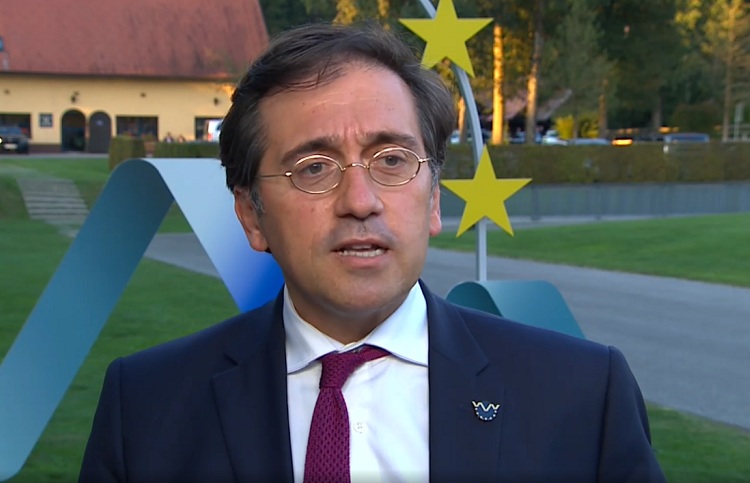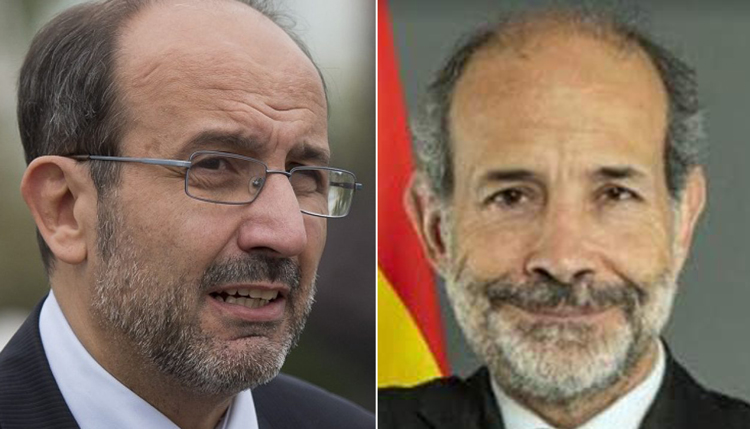The Diplomat
The Ministers of Foreign Affairs and Defense, José Manuel Albares and Margarita Robles, yesterday called before their respective European counterparts for a “unitarian response” from the EU to the current crisis in Afghanistan because Europe “cannot be a passive actor or look the other way”.
“I hope that we can come up with a unitarian response to the Afghan crisis” that will allow the EU’s Afghan collaborators to leave Kabul and contribute to “protecting human rights, especially those of women and minorities currently at risk”, José Manuel Albares told the press upon his arrival at the two-day informal meeting of EU foreign ministers (Gymnich) in Slovenia, the minister’s first face-to-face meeting with his European colleagues since taking office.
Hours before, Albares declared to Efe Agency that, in order to achieve these objectives, especially the evacuation of the Afghan collaborators who could not leave the country before August 31, it is necessary “to establish some guidelines of behaviors with the Taliban to be able to maintain these operative contacts, in no case political contacts”.
“Spain is obviously not going to negotiate” with the Taliban, warned Albares, who specified that “the important thing” is that, through these contacts, the new Afghan leaders set “points or periods at the airport” in Kabul that allow the eviction of the Afghans who collaborated with the EU during the 20 years of European presence in the country.
For her part, Margarita Robles warned her European counterparts that the EU “cannot be a passive actor, nor look the other way, in the future of the people of Afghanistan”. “The hard lessons learned in Afghanistan must be taken into account in all our other missions” and must serve to “mark a before and after in the way the European Union projects security,” Robles continued during her speech. “Stabilization missions can never end abruptly” because “the delicate balances they help to create suffer if external actors suddenly disappear,” she warned.
“The European Union must encourage the entire international community to speak with a single voice of active vigilance and pressure on the Taliban regime, to limit as much as possible the current internal scenario of terror and fanaticism” and, at the same time, “avoid human rights violations, with special attention and protection as I just said, of women and girls,” she continued. “We cannot accept that Afghanistan should once again become a haven for international terrorism,” she added.
Robles also urged the EU defense ministers to “resume as soon as possible the necessary actions to facilitate the departure from that country of the remaining family members of our Afghan collaborators, who could not be evacuated and other particularly vulnerable people, especially women and girls, who wish to leave Afghanistan.” “Spain, like so many other countries, has put all the means at its disposal to try to save and evacuate the greatest number of people”, and, in this sense, the “enormous effort of the Spanish Armed Forces” has allowed, “in a risky and extremely difficult rescue mission”, to evacuate from Afghanistan “2,000 people”. “We have also been a hub for the European Union, for NATO aid workers and also for those from the United States. In total, more than 5,000 Afghans have entered the West through Spain,” she added.







